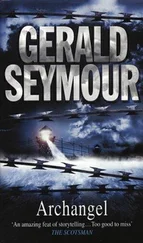“Which was why we were glad to invite you,” he told Constantine, at the end of that exhausting first day. By then, Constantine had grasped that his tasks here were going to be as different from the straightforward round of feeding, milking, and mucking out as the rambling buildings were from his other uncle’s big plain barns. Partly he was excited, and partly he wanted to throw himself under one of the massive old trees and sleep until fall came again. “Your mother said you’d been doing wonderfully at Harry’s, so we thought you’d be perfect here.”
This feed for these ducks, this mixture of grain for this cow; draw off this much milk from Susie’s bucket to feed the bull calf with the star on his forehead and make sure to put the amounts in this notebook; his uncle, he could tell, half expected him to lose track of it all. But his uncle had no idea what he could do. After he milked his first two cows, Taggart brought over his own stool and sat down to strip the last, richest drops — then looked up, surprised, to find nothing left behind. Constantine knew, too, that his handwriting was tidy, his columns of figures straight and his sums correct; he was deft with the utensils and easy with the calves. Less visible, but more important, was what he’d learned at his other uncle’s farm: an ability to keep working, without complaint, no matter how tired and lonely he really was. Here, the hours whisked by and the tasks were mostly pleasant. But what was he doing them for ?

AND WHAT WERE all the books for? One called Variation of Animals and Plants under Domestication next to the sofa, another called The Mutation Theory out on the porch, the parlor table heaped with agricultural and horticultural magazines, seed catalogs and nursery brochures, issues of Popular Science and Popular Mechanics . A book about electrical circuits under one of the lamps and all the bookshelves spilling extra papers. At his school in Detroit, he shared a handful of torn textbooks with everyone else in that densely crowded room and seldom turned a page himself, but here Taggart and Ed always seemed to be reading or discussing what they read, a froth of words that made Constantine’s head spin. He tried to filter out most of it, taking only what was directly useful to whatever he was doing at that moment.
Late on his fourth afternoon there, Ed gave him two fat books about the theory and practice of grafting and a twenty-minute demonstration, which he watched closely. He flicked through the books and set them aside as soon as Ed left; then went to work with a plum tree and the excellent little knife Ed had loaned him. Trimming buds from his bud stick, he cut his thumb twice — but finally he got three buds tied and waxed into the bark slits. When he straightened up, he saw someone he didn’t recognize standing in the pond.
A woman, he realized, rubbing clay and beeswax from his hands as he walked over. And old enough to be his grandmother, with a creased face and gray hair knotted beneath a broad-brimmed hat. That, and her cotton work pants, had first made him think she was a man.
“Give me a hand?” she called. She was pulling on a rope attached to one of the floats.
He hurried to the edge of the pond, stripped off his boots and socks, and waded in, flinching as his toes sank into the muck. Something sharp nicked his left heel and he lifted it, before uneasily setting it down again: rock, glass, fishbone, wire, tooth?
“What should I do?”
“Help me lift this out.”
Through the cloudy brown water he reached for a curved rim, tugging to the surface one end of what turned out to be a mesh cylinder the size of an apple crate. Inside were fish, flopping unhappily as he and the stranger towed it closer to the bank. “A trap?”
The woman nodded, pointing out the wire funnel while unhinging the opposite end. “Catfish, mostly.” She reached inside, pushing the bodies around so she could examine them all. “But I was hoping to get at least one of the fish from Kentucky. No luck today, though.” She retrieved her hand and shook the creatures into the water. “Thank you for helping. Are you working here?”
“Taggart’s my uncle,” he explained.
“Good to meet you,” she said. “I’m your uncle’s old high school teacher — Miss Henrietta Atkins.” Her grip was shockingly strong and so warm, despite the water, that it felt electric. “Nice thing, to have a nephew,” she added. “I have five nieces.”
A fish, perhaps one they’d just released, broke the surface behind her and then disappeared again. “One’s about your age. You’ll be in school here this fall?”
But they were no longer alone. Taggart, who’d appeared from wherever he was working and now stood at the edge of the water holding a long tube, said, “Stan’s visiting for the summer. He’s helping us out with some projects.”
How foolish his new name suddenly sounded! “Constantine,” he said to Miss Atkins. Taggart looked at him quizzically. “I changed my mind.”
“A person should always be able to do that,” his uncle said. He waved the tube over the trap. “Anything?”
“Not today,” Miss Atkins said. She stepped out, pulling the empty trap behind her and revealing bare feet below pants soaked from knee to hem. A little turn of her wrist unfurled a rolled skirt from her waist and concealed her legs. “But I brought fresh bait.” She was slighter than Constantine had first thought and only an inch or two taller than he was.
“Do you think they’re still alive?” Taggart asked.
Pushing into the conversation, wanting for once not to be left in the state of confusion in which he spent part of every day, Constantine said, “These fish — what are they?”
“Cave fish,” Miss Atkins explained, dropping a foul-smelling gobbet into the trap. “ Amblyopsis spelaeus , native to a cave in Kentucky. They don’t have any eyes. They’re flesh-colored, almost white, and when they’re moving, they look like skinned catfish swimming on their backs. Smaller though.” She measured out three or four inches between her forefinger and her thumb.
“But why …?” Constantine said.
“Why are we interested?” Taggart said. He smiled at his old teacher. “We’re both just curious about them — there’s a lot of discussion about how they evolved. Why do you think a cave-dwelling species might lose its eyes?”
They were both looking at him intently. “Because they don’t need their eyes in the dark?” he offered. How would he know? “If they can find food by sound, or by touch, I guess it wouldn’t hurt them not to have eyes, since the other animals around them couldn’t see any better in the dark. Maybe eyes just disappear, if we don’t use them?”
Taggart nodded. “Good guess — but when you really question the mechanism of how that happens, it’s not so straightforward. Maybe some fish began exploring the outer parts of the cave long ago, and when they found food and shelter there, they moved back a bit farther into the cave with each generation, and as it got darker, those with imperfect eyes but more highly developed other senses were selected for, adaptations appearing little by little until finally those who made it deep into the cave had no eyes at all.”
Constantine closed his own eyes for an instant, trying to picture this.
“Or maybe a whole group of fish were swept into the cave during a flood,” his uncle continued, “and the ones with perfect eyes found a glimmer of light and swam out, but a few who already had imperfect eyes were trapped, and bred, and eventually lost their eyes entirely. Or maybe, outside the cave, some sport with no eyes appeared, the way a peculiar plant or animal pops up here — but then instead of that fish staying in its regular habitat, where it would have died, it fell or swam into a cave, where having no eyes wasn’t fatal? And then somehow it found a mate, and then—”
Читать дальше













